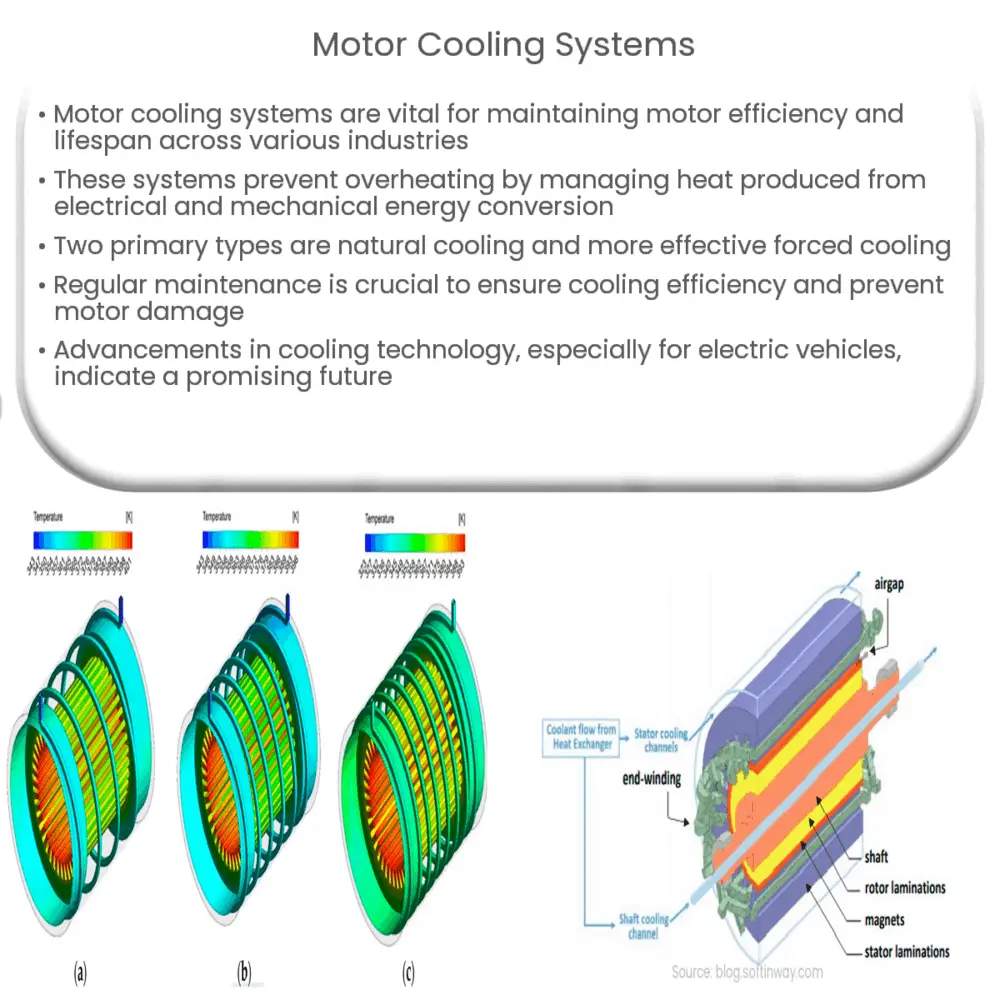Explore the importance, types, and maintenance of motor cooling systems and future trends in this comprehensive guide.

Understanding Motor Cooling Systems
Motor cooling systems play an integral role in maintaining the efficiency and lifespan of various motors in industries such as automotive, manufacturing, and electronics. These systems help regulate the temperature of motors, preventing overheating and associated damage.
The Need for Motor Cooling Systems
Motor cooling systems are necessary due to the heat generated in motors during operation. This heat is a result of electrical and mechanical energy conversion, which invariably leads to energy loss through heat dissipation. Without effective cooling, the excess heat can cause significant damage to the motor’s components, such as melting the insulation or causing structural deformities in metallic parts. Therefore, proper heat management is crucial in ensuring the longevity and performance of motors.
Types of Motor Cooling Systems
Both cooling types can be implemented in a variety of ways depending on the motor’s design, usage, and environmental conditions. Cooling systems are usually designed as part of the motor but can also be added as a separate unit, based on the cooling needs.
Key Components of Motor Cooling Systems
Several components form an integral part of a motor cooling system. These include:
Each component contributes to the overall efficiency and effectiveness of the motor cooling system. The right choice and arrangement of these components are essential for optimal cooling and motor performance.
The Design and Functionality of Motor Cooling Systems
The design and functionality of motor cooling systems are influenced by factors such as the type of motor, the application it is used for, and the ambient conditions. Motors deployed in high-temperature environments or those handling high-load operations may require advanced cooling systems with higher cooling capacities. These systems may incorporate techniques like water cooling or even phase change cooling for optimal heat dissipation.
Maintenance of Motor Cooling Systems
Maintenance is crucial to keep a motor cooling system functioning efficiently. It is essential to regularly clean the cooling system to remove any accumulated dust or dirt, which can hamper the heat dissipation process. The coolant level and quality should also be monitored and maintained. A poorly maintained cooling system can lead to inefficiency, overheating, and eventual motor failure.
Future Trends in Motor Cooling Systems
With continuous advancements in technology, motor cooling systems are also evolving. New materials with better thermal conductivity, like nanofluids, are being explored. Also, with the rise of electric vehicles, the demand for effective motor cooling systems is on the rise. Manufacturers are investing in R&D to develop more efficient and compact cooling solutions, specifically for electric motors.
Conclusion
In conclusion, motor cooling systems play an instrumental role in preserving the lifespan and enhancing the performance of motors across various industries. From natural to forced cooling methods, these systems have seen advancements in design and technology, resulting in increased efficiency. The selection of appropriate cooling systems and their components, coupled with regular maintenance, ensures optimal performance and longevity of motors. Looking ahead, continuous technological advancements promise an exciting future for motor cooling systems, especially in areas like electric vehicle technologies.

